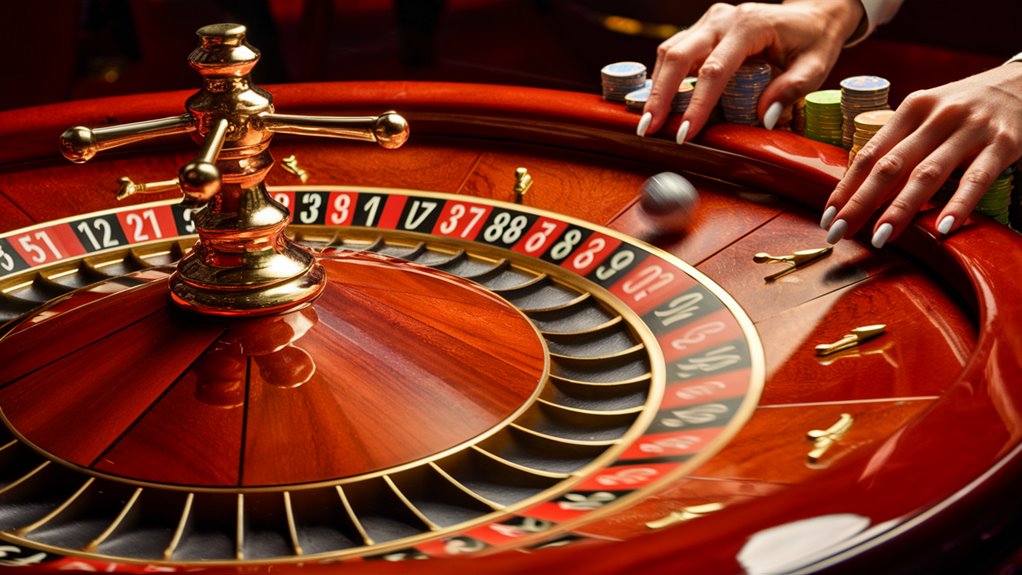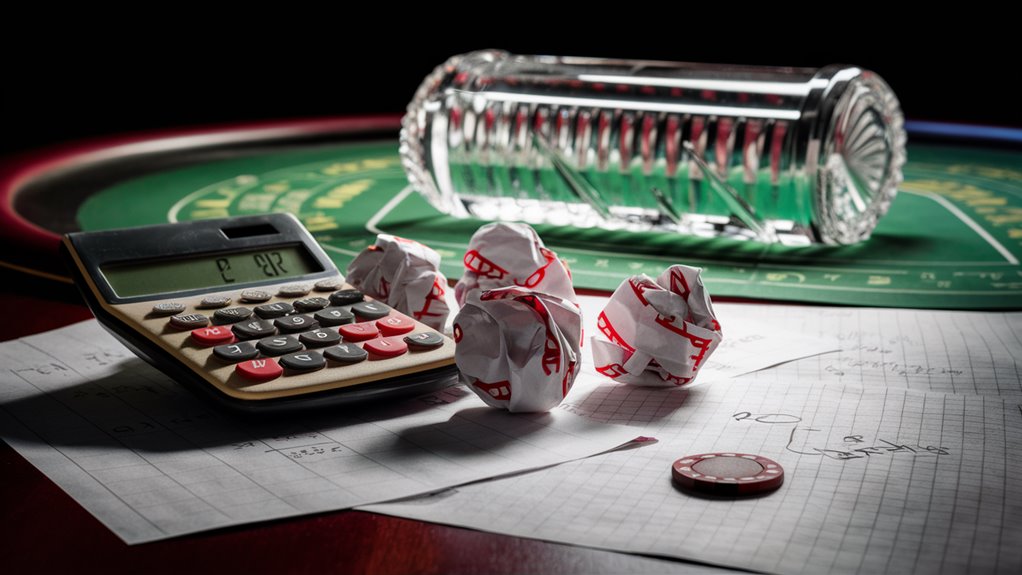You Need to Know This About Sports Betting

How Math Runs Sports Betting
The main part of sports betting is about math rightness and figuring out odds. Bookmakers always win more through set odds systems that make sure they stay on top over time. To just break even with usual -110 odds, bettors must win 52.4% of their bets.
The House Edge and Vig
The house edge shows up mainly in the vigorish or “vig,” a fixed cut about 4.5% that bookmakers take from bets. This means people bet $110 to win $100, making it hard to win much after a while. This math downside gets bigger over time, stopping most from winning much.
Keys to Good Betting
Must-haves for Smart Betting:
- Good money control
- Full track of how you do 온카스터디 안전업체 보기
- Plan-based review of numbers
- Making choices from data
Rather than just gut-feeling or random picks, winning in sports betting needs careful, number-based planning. Knowing these main things helps to build a smart betting plan.
What Pro Bettors Do
Pro bettors dive into:
- Checking stats
- Looking at market trends
- Thinking through risks
- Planning for a long time
This deep understanding of the basics lets bettors choose better, based on real info, not just guesses.
Getting the House Edge
Why The House Often Wins
The Math Bookmakers Use
The house edge, the math lift that bookmakers mix into odds, keeps them winning money in the long haul. When making a usual point spread bet, bettors often bet $110 to get $100, with the extra $10 being the fee, known as “vigorish” or “vig.”
This setup turns into odds that stack over 100%, often up to 104.5%.
Breaking Down the Numbers
The math of sports betting shows a hard truth: even winning 50% of bets on straight-up bets still makes you lose money because of the house edge. To just break even when betting standard -110 odds, bettors need to win 52.4% of their bets. Winning less means losing money steadily.
Long-Term House Edge Effects
The big effect of the house edge shows up when looking at lots of bets. Betting on 1,000 races or games with regular odds, even with a perfect 50% win rate, bettors lose about 4.5% of all the money they put down. This math model makes sure bookmakers keep winning, no matter who wins the sports, making sports betting a game of careful odds guessing.
Key Numbers to Know:
- Regular Vig: -110 odds
- Point to Break Even: 52.4%
- House Edge: 4.5%
- Risk Needed: $110 for $100 potential win
Kinds of Sports Bets
All About Sports Bet Types
Usual Sports Bets
Moneyline betting is the simplest bet, picking who wins the game or match. Point spread betting makes teams need to win or lose by certain points, making odds fairer between the favorites and long shots. Totals betting, or over/under, is all about the end score total, not who wins.
More Bet Choices
Parlay betting ties many bets into one chance, which can pay more but needs all picks to win. Proposition bets (props) focus on things happening during the game, from how players do to specific game moments. Futures betting is about long looks at who might win big games or honors later.
Special Bets
Teaser betting lets you tweak point spreads across different games, making better odds but less money if you win. Pleaser betting does the opposite, moving lines against you for a chance at more money back. Live betting lets you bet during the game with odds changing as the game goes.
Smart Betting Points
Knowing odds well, figuring out payouts, and managing risks are key for all kinds of bets. Good bettors get the basics right before trying the trickier bets. Looking at markets, checking stats, and handling your money well are the base of smart betting moves across all bet types.
Money Control Musts
How to Manage Your Betting Money: Top Tips for Success

Starting Your Bet Plan
Money control starts with setting aside a bet budget that is just extra cash you can stand to lose, keeping it away from need-to-pay bills. A good money stack is only extra cash you are okay to lose, making a needed wall from cash stress while helping clear-headed picks.
How Unit-Based Bet Plans Work
The unit-based bet system is key for pro money control. Usual bet units should be 1-2% of all your bet money. With a $1,000 money stack, each unit is $10-$20, helping stop bad bet moves and making your money last longer.
Tracking and Checking
Top record-keeping is needed for good money care. Keep great notes through sheets or betting apps, writing down:
- How much you bet
- The odds you got
- How it turned out
- What’s left in your betting stack
- When to stop if losing too much (like if down 20% of your stack)
Sticking to Your Bet Plan
Keeping your bet size the same is key, no matter if you just won or lost. Good money care needs firm rules – don’t bet more trying to win back losses, keep your bets the same size when you’re winning. This planned way keeps pro betting apart from just gambling for fun.
How to Handle Risks
- Set firm daily stop-loss limits
- Keep tight caps on each bet
- Take breaks as needed
- Watch for changes in your bet money percentage
- Regularly check and tweak your plan
How to Read Odds Right
All About Understanding Betting Odds: Full Guide
Key Odds Types Explained
Getting how betting odds work is needed for smart sports betting. The three main odds kinds – American, decimal, and fractional – each show payout info in different ways.
American Odds 101
American odds use a plus/minus system for easy payout figuring:
- Plus odds (+150) show possible profit on a $100 bet
- Minus odds (-150) show what you need to bet to win $100
- Example: +150 means $100 could make $150 profit
Breaking Down Decimal Odds
Decimal odds give the most straight bet return figuring:
- Multiply your bet by the decimal for total back
- This count includes your first bet in the number
- Example: 2.50 odds on $100 gives back $250 total ($150 profit)
Getting Fractional Odds
Fractional odds, big in British bet places:
- Show winnings as parts of the bet (3/2)
- First number is profit parts
- Second number is bet parts
- Turn to decimal: divide first by second, add 1 (3÷2 + 1 = 2.50)
Fast Odds Change Tips
Changing odds between types makes sure you compare right:
- Fractional to decimal: divide numbers, add 1
- Decimal to American: (decimal – 1) x 100
- American to fractional: cut down the ratio to its simplest form
Main Sports Betting Slip-ups
Big Sports Betting Mistakes to Dodge
Knowing Key Betting Goofs
Winning at sports betting means staying clear of several bad moves that can eat your money fast and cut into long-term winning. These common goofs can mess up even those who’ve been betting a while, so knowing them and keeping them out is key.
Bad Moves Like Chasing Losses and Emotional Bets
Chasing losses is one of the worst betting moves, where bettors put up more money trying to get back what they lost. This often just makes losing speed up and digs bigger money holes. Emotional betting, like betting on teams you love, skews smart thinking and leads to bad bet choices.
Making a Solid Betting Plan and Money Rules
Smart money rules are the base of doing well in sports betting. Setting up a clear plan needs:
- Keeping bets to 1-3% of all your bet money
- Having set bet sizes ready
- Making a clear list of how you pick what to bet on
- Keeping your betting steady no matter win or lose
Keeping Good Records and Checking Data
Full records help bettors:
- Watch how they do across different sports and markets
- Spot winning bet trends
- Figure out win rates and money made back
- Change their plans based on firm data
Finding the Best Odds
Checking odds at different places is key for:
- Getting the best prices
- Cutting down on bet fees and costs
- Raising how much you make back
- Taking advantage of market slips
Top Tips for Managing Risks
Smart betting needs sticking to set rules, regular plan checks, and always looking carefully at markets. Doing well needs betting choices based on facts, not feelings.
How to Dig Deep with Research
Deep Research and Analysis for Smart Betting
Building a Solid Analysis Plan
Good research and checking need a planned mix of many info ways and tools. The start depends on stat models, full performance numbers, and key setting details. Doing well hangs on looking at crucial performance bits while thinking of big things that change game results.
Gathering and Managing Info
Pro checking needs strong focus on data quality and checking sources. Main sources include:
- Official stats places
- Advanced numbers tools
- Checked old records
- Live performance tracking
Looking at Performance Numbers
Deep looks need checking both numbers and real-life facts:
- Score trends and moves
- Face-to-face game histories
- Efficiency rates and percentages
- Team vibes and teamwork
Outside and Chance Factors
Full checks must think about outside things that change how games go:
- Weather and outside impacts
- Travel plans and rest times
- Place conditions and game place numbers
- How packed the recent game list is
Tools for Deep Looks
Pro analysts use smart tools for deeper insights:
- Custom sheets
- Numbers checking programs
- Trend tracking setups
- Pattern spotting tools Common Myths About Online Sports Betting?
Mixing in Market Checks
Smart betting choices need an understanding of market moves through:
- Old trend looks
- What people think tracking
- Movement pattern spotting
- How well markets work checks
Key Risk Rules
Success leans on setting strong risk rules:
- How big to make bet sizes
- Where to put resources
- Performance tracking bits
- How to stop big losses




